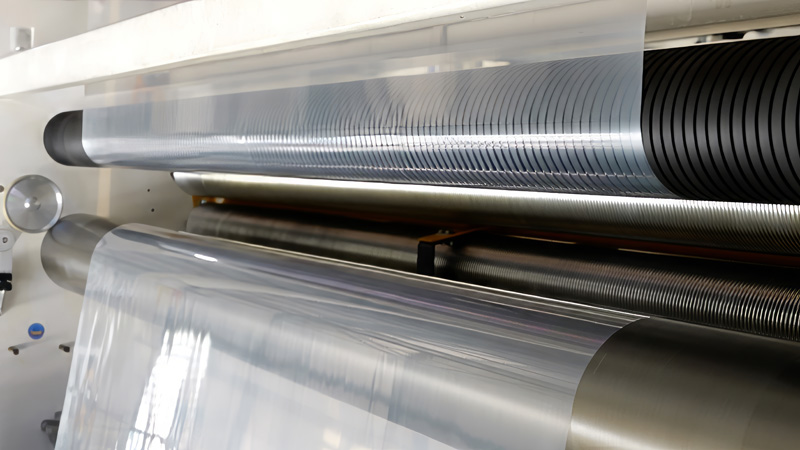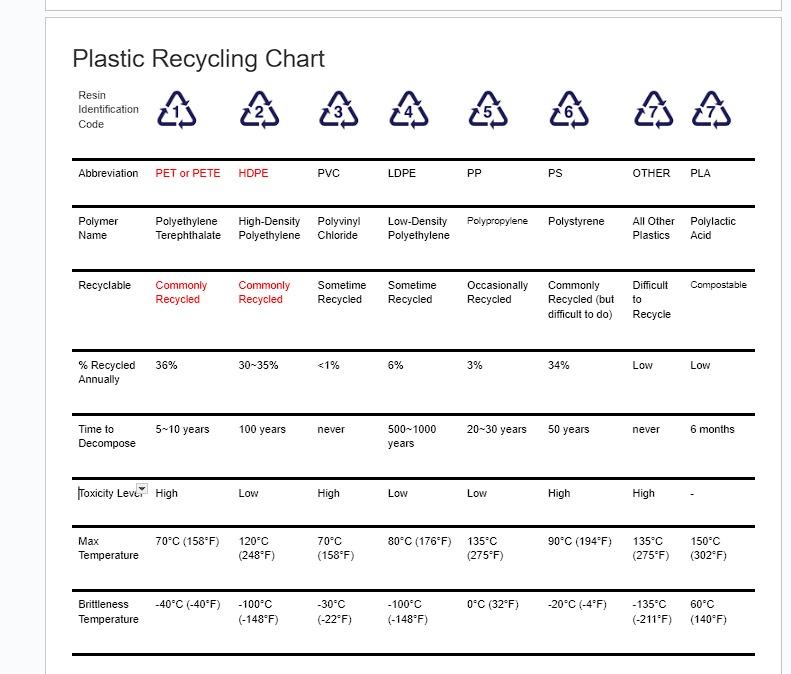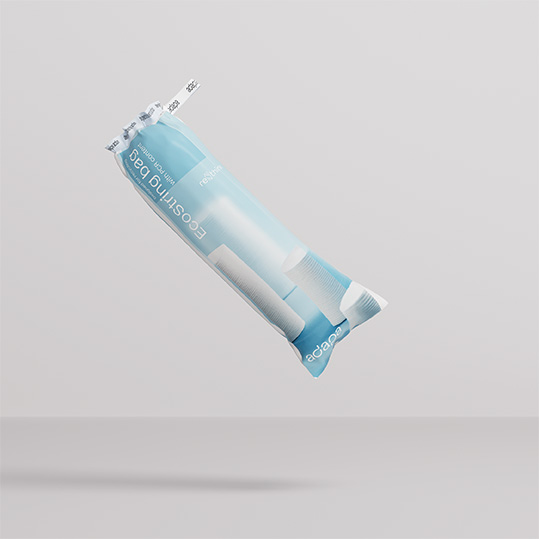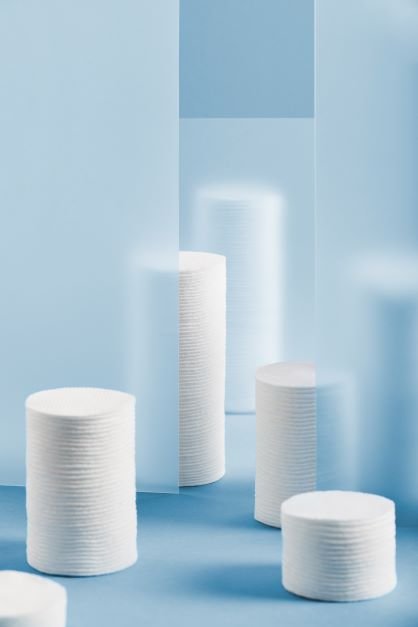-
Most of us are familiar with classic types of plastic such as polyethylene terephthalate (PET), polypropylene (PP) or polyethylene (PE). Each of these polymers has its own properties and is therefore well suited to different applications.
Since the focus in flexible packaging has shifted towards design for recycling, the properties of plastics have been re-evaluated and their manufacturing processes further developed. Certain materials are particularly suitable for specific use cases such as high density polyethylene (HDPE). Retail Partner has innovated the world’s first High Barrier HDPE (HB-HDPE) dubbed Resin2Film.
To obtain HD-PE, polyethylene is subjected to a special process: it is stretched in the machine’s running direction. This is necessary because PE itself can be a very stretchy (LDPE) or rather hazy (HDPE) plastic. Standard PE can be used very well for sealing processes, but makes life difficult when it comes to printing or stability of the final pack.
So why do we want to use HDPE at all and not focus on other plastics such as the less soft PET?
One of the reasons lies in the current development of the recycling infrastructure: there are very good existing recycling loops for polyethylene in many European countries. Also, PE is more versatile than other polymers.
If you take PET, for example, it is difficult to seal or could therefore not be easily integrated into modern, fast production processesALSO
The Truth About LDPE (Resin 4): Misleading Recycling Claims by Major Companies
Claiming that LDPE (Resin 4) is recyclable is like drinking alcohol and calling it hydration—misleading and harmful. It contributes to landfill waste and diverts attention from real environmental solutions.
As consumers become more eco-conscious, the demand for recyclable materials has grown. However, despite claims by some major companies, LDPE (Resin 4) and other resins like 3, 5, 6, and 7 are not as recyclable as they are often portrayed. While LDPE can theoretically be recycled, significant practical challenges remain largely unaddressed by the industry.
The stark reality is that 94% of all pouches, bags, and bag-in-box liners made from LDPE and other Resins 3, 4, 5, 6, and 7 end up in landfills. This is because many recycling centers do not accept LDPE due to the specialized machinery required for its processing. The few facilities that do accept LDPE often contribute to a larger carbon footprint due to the long distances these materials must be transported.
Hawaii, a state known for its environmental leadership, has banned all plastic bags except those made of PET (Resin 1) and HDPE (Resin 2). It is anticipated that other states may soon adopt similar legislation to combat the environmental impact of non-recyclable plastics.
The narrative that LDPE is easily recyclable is misleading, allowing major companies to falsely position themselves as environmentally friendly. This misinformation leads to more waste ending up in landfills and undermines genuine environmental efforts.
Consumers are urged to be informed and make responsible choices. HDPE (Resin 2), unlike LDPE, is truly recyclable and offers a sustainable option for reducing environmental impact. Choosing Our Resin2film can make a significant difference in achieving sustainability goals.
-
-
Retail Partner’s String bag is the more sustainable alternative to the drawstring bag.
Retail Partner Elevates the Drawstring Bag with Sustainable Innovation
Retail Partner, a leader in flexible packaging solutions, has advanced the classic drawstring bag for hygiene and cosmetic products to new heights. The enhanced String Bag incorporates 80% post-consumer recycled (PCR) content, making it a more sustainable alternative to traditional drawstring bags. This innovative single-material solution, where both the bag and the drawstring are crafted from easily printable polyethylene, ensures full recyclability and the effective use of recycled materials.
True Mono-Material Solution for Hygiene and Cosmetic Products
Achieving closed product loops is a key principle of the circular economy in packaging. To accomplish this, packaging must be both recyclable and composed of recycled materials. Retail Partner’s new String Bags fulfill these requirements: they are constructed from 80% mechanically recycled post-consumer recyclate (PCR) and are fully recyclable as both the bag and drawstring are made of polyethylene (PE). The traditional viscose drawstring is replaced by a plastic strap, maintaining its functionality while ensuring that the mono-material design eliminates the need for component separation during recycling. Thus, the String Bags are entirely recyclable and effectively close the loop with their 80% PCR content.
Retail Partner’s innovative packaging is available as prefabricated bags with pre-punched holes for simplified order picking. They are designed with material efficiency in mind, featuring film thicknesses as low as 32 µm, making them among the thinnest in their segment. Additionally, the production of the drawstring is optimized for resource conservation by utilizing edge trimmings from the bag manufacturing process. The String Bags can be printed in up to 10 colors, with both the bag and drawstring offering opportunities for print communication. Available in individual matte or glossy finishes, they provide an attractive visual presentation at the point of sale. The use of recycled materials and the recyclability of the String Bags are compelling advantages for eco-conscious consumers.
Highest Standards of Quality and Safety
In its pursuit of enhanced sustainability and resource conservation, the packaging industry is seeking innovative solutions to increase the use of post-consumer recycled (PCR) materials. Retail Partner has successfully achieved this with the introduction of the String Bag in the drawstring bag segment. Utilizing PCR materials presents several challenges, including the need for high-quality PCR material. Retail Partner addresses this through the expertise of its in-house PS Polymer Sourcing, which enables precise identification of suitable materials.
Additionally, meeting stringent quality and consumer protection standards is essential. “Our extensive experience in producing String Bags, combined with our sustainability expertise and understanding of the hygiene industry’s requirements, ensures that we uphold the highest product safety standards. Through regular quality controls and independent laboratory tests, Retail Partner guarantees the safety and reliability of our new generation of bags, which feature 80% PCR content,” said a spokesperson from Retail Partner.





